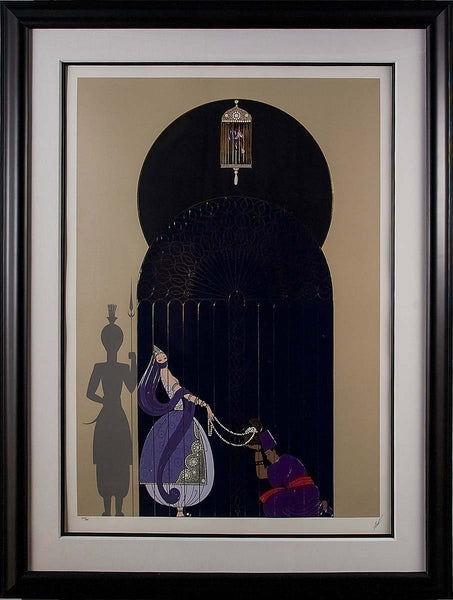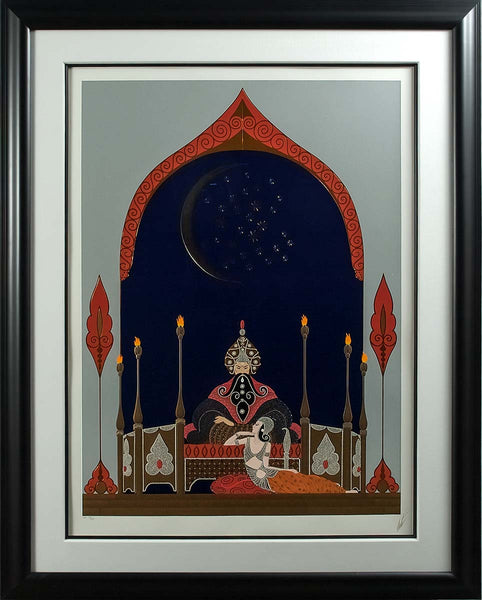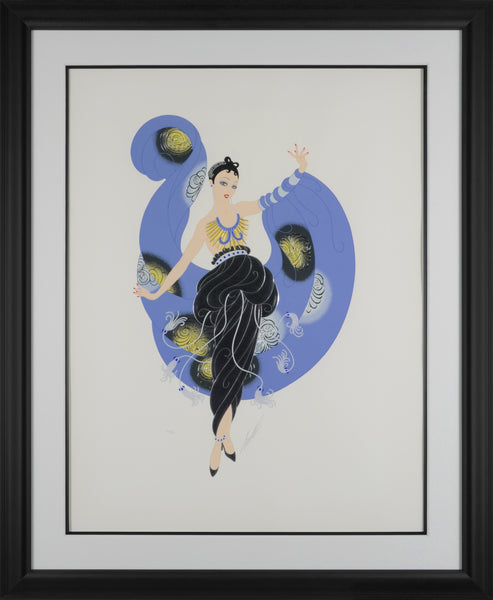About the Work
"Ermine Brocade" is a bronze sculpture created by Erté. From the edition of 462, the bronze is stamped with the artists signature. The sculptures dimensions are 22 x 18 x 9" and the sculpture ships accompanied by a certificate of authenticity.
"Ermine Brocade" was derived from an original evening coat design for Poiret in 1913 and redrawn for Harper's Bazar in 1913.
The bronze sculpture/casting medium and process is, and has always played, a fascinating part in the history of art, admired by civilization for thousands of years and continuously developed with modern technology. Erté sculpture exemplifies the timeless beauty of this intriguing art form and manifests the artist’s personal unique flair in every bronze creation.
About the Artist
Erté was born Romain de Tirtoff in St. Petersburg, Russia on November 23rd, 1892 and was raised amidst Russia's social elite. At the age of five he created an evening gown for his mother and managed to persuade the adults to craft it, they were astounded by the results. In 1912, Romain left St. Petersburg for Paris at the age of nineteen with the aim of becoming an artist. After working with Paul " Le Magnifique" Poiret on several theatrical productions Romain, still under the pseudonym of Erte, began to work more independently. He hand-crafted original costume and fashion designs for many of the era’s most renowned actresses, including Joan Crawford, Lillian Gish, Marion Davies, Anna Pavlova, Norma Shearer, and others. His masterpieces for the stage included extravagant production designs at venues such as New York’s Radio City Music Hall, the Casino de Paris, and the Paris Opera. In 1915 he began his long professional relationship with Harper's Bazaar and created 240 covers for the esteemed magazine. For 6 months in 1916, Erté simultaneously worked with Vogue as well. As a result of his highly publicized success, Erté would later be called the father of the ‘Art Deco’ movement.






